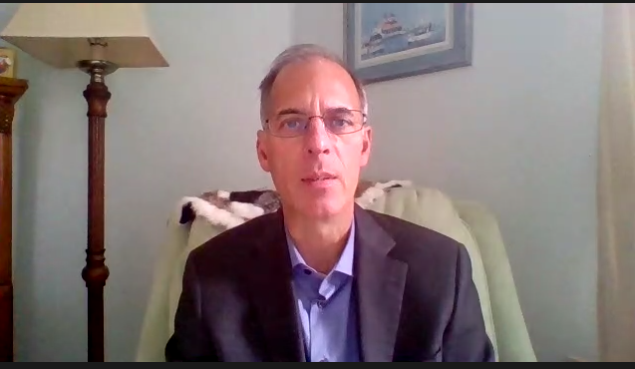
SMITHFIELD – An estimated three-year recovery to pandemic-related job losses nationally could take double the time in Rhode Island, Moody’s Analytics Chief Economist Mark Zandi said in a call with reporters on Wednesday.
Zandi shared his economic predictions, both national and local, in a panel discussion entitled “The Challenges after a Historic Election,” organized by Bryant University. Panelists agreed that future federal stimulus money will be critical to when, and how, the country is able to bounce back from the toll of a still-surging virus.
“Small businesses are just hanging on by a thread,” said panelist and New York City Deputy Mayor J. Phillip Thompson. “Many will go under unless there is relief, and unless the relief is really targeted in the neighborhoods where it’s most needed.”
With cases spiking across the country, and a worldwide per-capita positivity record in Rhode Island, the next few months are going to be “tough” economically, Zandi agreed. He predicted job losses and unemployment will rise again, with a full recovery nationwide not likely before 2023.
In Rhode Island, which historically has been “first in, last out” of recessions, complete job recovery could take four to six years, Zandi said.
Still, the state benefits from a highly educated workforce and an increasing emphasis among higher education institutions and job training programs on catering to fast-growing industries such as technology and professional services.
Bryant University President Ross Gittell, who also spoke on the panel, said the major employers responsible for hiring Bryant students – finance and health care companies like CVS Health Corp., Amica Mutual Insurance Co., and Citizens Financial Group Inc. – are hiring at the same rate now compared to a year ago.
Gittell credited the university for its continued focusing on skills-based training in in-demand industries, and partnerships with major employers as reasons why its students continue to find jobs in a challenging economy.
Workers in retail, hospitality, transportation and other hard-hit sectors have not fared as well, with employment and income inequality likely to worsen as the pandemic rages on, Zandi said.
Asked how states should best spend any future federal stimulus money to maximize economic recovery, he suggested leveraging dollars in conjunction with other federal programs and priorities, such as affordable housing, which can address housing shortages and create jobs.
“Rather than disperse funds broadly, I’d try to focus on one thing and really double down,” Zandi said.
Nancy Lavin is a PBN staff writer. You may reach her at Lavin@PBN.com.











